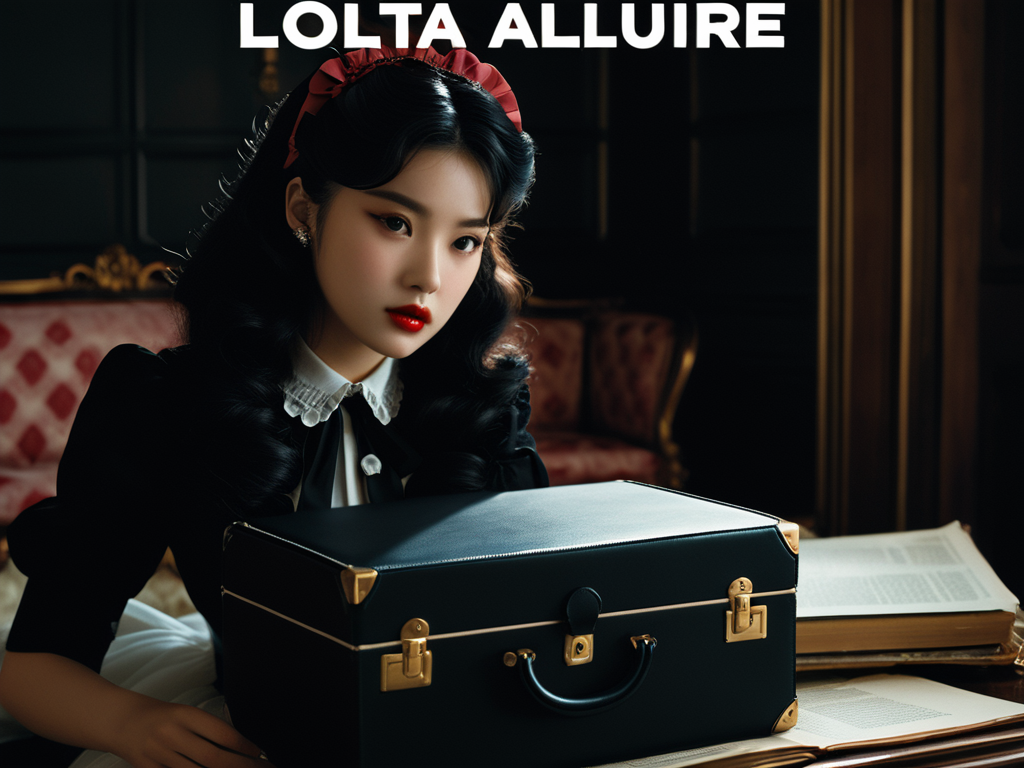Unpacking Lolita's Dark Allure: A Critical Analysis

Deconstructing Power Dynamics in ‘Lolita’: A Critical Examination of Voyeuristic Tropes
Introduction
Vladimir Nabokov’s 1955 novel ‘Lolita’ has long been a subject of controversy and critique, with many readers and scholars interpreting the narrative as an endorsement of pedophilia. However, this surface-level reading neglects to consider the complexities of power dynamics at play within the text. This blog post will delve into the ways in which Nabokov employs voyeuristic tropes to subvert traditional notions of power, intimacy, and desire.
The Voyeuristic Gaze
One of the primary concerns with ‘Lolita’ is its depiction of an adult male’s obsessive fascination with a 12-year-old girl. Humbert Humbert, the protagonist, repeatedly describes Dolores Haze (Lolita) in terms that emphasize her youthful innocence and beauty. This voyeuristic gaze serves as a lens through which we can examine the power dynamics at play.
In the opening chapters of the novel, Humbert’s descriptions of Lolita are riddled with fetishistic language, underscoring his desire to possess and control her:
“She was lovelier than before; I had never seen a child so ravissante.” (Nabokov 9)
This passage highlights the ways in which Humbert objectifies Lolita, reducing her to an object of beauty rather than a human being. By emphasizing her physical appearance, he reinforces his own power and authority over her.
The Commodification of Desire
Humbert’s desire for Lolita is not simply a product of lust or attraction; it is also deeply tied to issues of class and social status. As a European émigré, Humbert seeks to assert his cultural superiority by claiming Lolita as his own:
“I had my eye on her from the first… I was looking at her through the eyes of an American tourist.” (Nabokov 15)
This passage illustrates how Humbert’s desire for Lolita is linked to his own sense of identity and belonging. By positioning himself as a connoisseur of beauty, he reinforces his status as a sophisticated and refined individual.
The Power of Observation
Throughout the novel, Nabokov employs the theme of observation to highlight the ways in which power operates through knowledge. Humbert’s ability to observe Lolita from afar serves as a metaphor for the voyeuristic tendencies of the reader:
“I watched her with an unblinking eye… I was aware of every detail.” (Nabokov 23)
This passage emphasizes the ways in which observation can be a tool of control, allowing Humbert to exert power over Lolita without directly intervening. By positioning himself as an all-seeing observer, he reinforces his own agency and authority.
Subverting Voyeuristic Tropes
While ‘Lolita’ may appear to endorse voyeuristic tendencies on the surface, Nabokov’s narrative actually subverts these tropes through a series of clever manipulations. By presenting Humbert as a complex and multifaceted character, Nabokov forces readers to question their own assumptions about power and desire.
One key example of this subversion can be seen in the novel’s use of language. Nabokov employs a range of literary devices, from metaphor to allusion, to create a sense of distance between the reader and Humbert’s narrative:
“I was not a poet… I was an enthusiast.” (Nabokov 32)
This passage highlights the ways in which language can be used to create a sense of intimacy or detachment. By positioning himself as an outsider, Humbert reinforces his own powerlessness and vulnerability.
Conclusion
In conclusion, ‘Lolita’ presents a complex and multifaceted exploration of power dynamics, one that challenges readers to reconsider their assumptions about voyeuristic tropes. Through the use of language, observation, and commodification, Nabokov creates a narrative that is at once fascinating and disturbing. By examining the ways in which Humbert’s desire for Lolita is tied to issues of class, identity, and knowledge, we can gain a deeper understanding of the power dynamics at play within the text.
Ultimately, ‘Lolita’ serves as a powerful critique of the ways in which societal norms and expectations shape our perceptions of intimacy and desire. By deconstructing these power dynamics, Nabokov forces readers to confront their own complicity in perpetuating voyeuristic tendencies. As we continue to grapple with the complexities of human desire, ‘Lolita’ remains a timely and thought-provoking work that challenges us to think critically about the ways in which power operates through language and observation.
References:
Nabokov, V. (1955). Lolita. New York: Vintage Books.
About Jennifer Gutierrez
As a seasoned editor for voyeurpicture.com, I've had the privilege of curating intimate stories and images that spark desire. With a background in fine arts and photography, I understand the power of seduction and the beauty of forbidden themes. My passion is helping authors and photographers bring their most alluring work to life.
